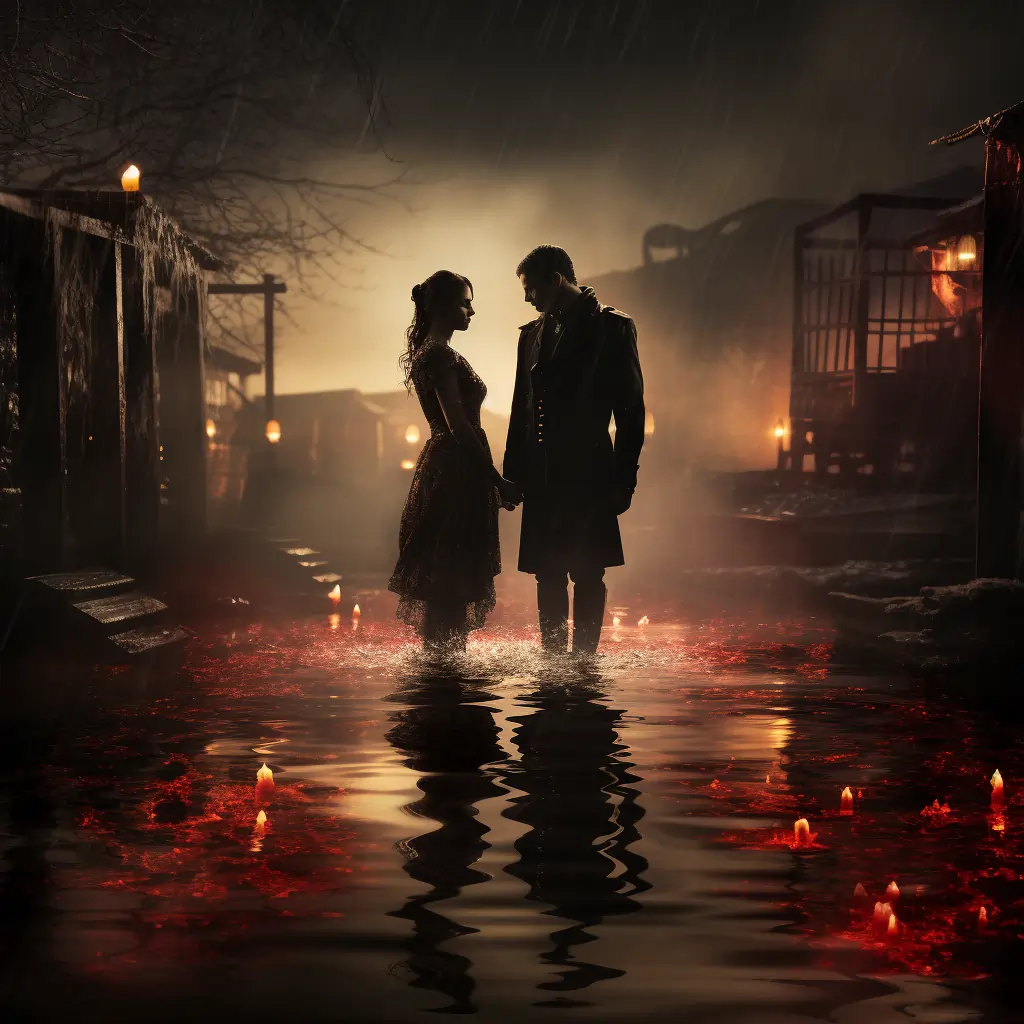You may be familiar with realistic fiction, a genre of fiction with an emphasis on realistic, believable events. If you read a contemporary story that deals with modern-day issues and doesn’t fall into other genres like romance or crime, you’ve probably got a realistic fiction novel on your hands. Here we’ll explore the elements of literary fiction.
But you may also have heard this term, especially in academic or critic circles. What’s literary fiction? What makes it different from other genres? How can we write it?
When it comes down to it, literary fiction is a complicated genre, and there’s a lot of nuance we have to keep in mind when we’re talking about what constitutes the best version of it.
You may already associate this genre with capital a “Art.” Literary fiction are the books that win critic awards, the ones that book clubs fawn over for years and years to come, the gripping coming-of-ages steeped in academic settings or war-torn nations.
You may also associate ‘literary fiction’ with snobbish academics who treasure obscure, difficult narratives that are really just plain unenjoyable. A lot of people seem to synonymize lit fic with boring, tangled stories with unsatisfying endings that critics love and readers, generally, hate.
What is “Art?” Who decides?
I’m here to unpack those questions, and to help you decide whether you should set out to write literary fiction. Spoiler alert: I don’t think it matters whether you decide to or not!
This guide to the literary fiction genre covers:
- What is literary fiction?
- How to write literary fiction
- Nine elements of the literary fiction genre
- What literary fiction isn’t
- Should you write literary fiction?
- Examples of literary fiction
What is literary fiction?
It’s a simple question, but the answer cuts into problems that run deep in our publishing system and, in fact, our society at large.
Literary fiction, to define it as simply as possible, is a genre of fiction set apart by its literary merit. Literary fiction is commonly realistic fiction, meaning that it deals with real people working through contemporary issues in a modern-day, believable setting, but this isn’t a hard rule.
The only real rule is that it has literary merit.
Okay, great. So, what’s literary merit? And who decides? And do works of literary fiction really have nothing else in common with one another except that they have ‘literary merit?’
Like I said, it’s complicated.
Works of literary fiction do tend to have a few things in common aside from literary merit. Let’s take a look at a few common points literary fiction tends to hit. Again, these aren’t rules or symptoms of literary fiction—-this is just to give you a clearer idea of what sorts of work tends to get described as lit fic.
(Also, just a head’s up: a lot of this is going to overlap with realistic fiction, and that’s okay! Don’t panic! I promise they’re different (sort of), and we’ll get into how and why in a little bit.)
How to write literary fiction step by step

We know you’re not here to ponder the definition of literary fiction. You’re here to take action! To help you do exactly that, here’s a step by step guide to writing literary fiction.
Step 1 – Find Your Theme
Start by deciding on the big-picture theme you want to explore. This could be anything from the human struggle against adversity to the complexities of modern relationships. Remember, literary fiction loves to ask the big questions, so don’t be afraid to think grandly.
Step 2 – Develop Complex Characters
Sketch out characters that are layered, realistic, and capable of growth. Think about their desires, fears, quirks, and flaws. The more human they are, the more engaging they’ll be to your readers.
Step 3 – Craft a Realistic Setting
Choose asetting that mirrors reality. Whether you choose a real city or a fictional one, make sure it feels authentic and grounded. Use vivid descriptions to bring this setting to life and make it believable for your readers
Step 4 – Plan a Character-Driven Plot
Your story should revolve around your characters’ emotional journeys rather than high-stakes action. The plot should serve to explore their growth and reactions to situations. Remember, it’s about how they evolve and change over the course of the story, not just about what happens to them.
Step 5 – Integrate Contemporary Issues
Make sure your story grapples with contemporary issues that reflect the world we live in. Use your narrative to explore these issues through the experiences of your characters. This not only adds depth to your story but makes it relevant and relatable to your readers.
Step 6 – Craft Beautiful Prose
Pay attention to your language and strive to create prose that is beautiful, evocative, and immersive. This might require more time and revision, but it’s worth it. Good writing isn’t just about telling a story, it’s also about how you tell it.
Step 7 – Use Symbols and Metaphors
Enrich your narrative with symbols and metaphors that amplify your themes. This will add a layer of depth to your story and make it more engaging for readers. It’s like adding a secret code to your narrative that only attentive readers can crack.
Step 8 – Revise, Revise, Revise
Good writing is rewriting. Don’t be afraid to revise your work multiple times until it feels just right. This is where you fine-tune your prose, fix plot inconsistencies, and deepen your character development.
Step 9 – Embrace Ambiguity
Finally, remember that not everything needs to be neatly wrapped up by the end of the story. Leave room for ambiguity and open-ended conclusions. This will stimulate your readers’ imagination and keep them thinking about your story long after they’ve finished reading.
Here are nine elements that help to define the literary fiction genre
To help understand the literary fiction genre in greater depth, let’s consider nine of its defining elements.
1 – Deep Characterization
Literary fiction often places emphasis on the depth and development of its characters. It’s less about what happens to them and more about how they react, change, and grow. You won’t find many superheroes or mythical creatures here, just believable, complex individuals like you and me.
2 – Realistic Settings
The worlds of literary fiction mirror our own, filled with real cities or fictional ones that could believably exist. This genre doesn’t usually entertain flights of fantasy or sci-fi, preferring to keep its feet firmly on the ground. Whether it’s a bustling metropolis or a small, Midwestern town, you’ll feel like you could visit these places.
3 – Contemporary Issues
Literary fiction grapples with modern, relevant issues, asking questions about society, politics, and the human condition. It’s not just about telling a story, but exploring how we relate to the world around us. Expect thought-provoking questions about identity, mental health, and societal norms.
4 – Character-Driven Narrative
In this genre, the story often unfolds through the development and experiences of its characters. It’s less about the twists and turns of plot, and more about how the characters feel, react, and evolve. Don’t be surprised if the plot takes a backseat to character development.
5 – Big-Picture Themes
Literary fiction doesn’t shy away from asking the big questions about life, existence, and humanity. This genre uses its characters and stories to explore these grand themes, often leaning towards the philosophical. It’s about painting a broader picture of what it means to be human.
6 – Literary Merit
This might sound vague, but literary fiction is often lauded for its ‘literary merit,’ a fancy way of saying it brings something unique and valuable to the literary world. This could be exquisite prose, innovative narrative techniques, or impactful themes. If it adds a fresh perspective or voice to the literary conversation, it’s got literary merit..
7 – Immersive Prose
Literary fiction often showcases a high level of craft in its prose. Every sentence is carefully constructed, every word carries weight. You’ll find yourself entranced by the beauty and precision of the language.
8 – Symbolism and Metaphors
This genre loves to layer its narrative with symbols and metaphors that enrich the reading experience. These symbolic elements often serve to amplify the themes and deepen the emotional resonance of the story. It’s like a treasure hunt, where every symbol holds a clue to a deeper understanding of the story.
9 – Open-Ended Conclusions

Literary fiction often resists tidy, wrapped-up endings. Instead, it might leave you with more questions than answers, encouraging you to reflect on the story long after you’ve finished reading. It’s all part of the journey, so buckle up and enjoy the ride!
What literary fiction isn’t
You’ve got some more concrete signifiers to look for to identify literary fiction. Let’s talk briefly about what literary fiction is not, and why it can be a little complicated when we start talking about literary merit and what constitutes ‘art.’ Sounds like a lot, I know, but stick with me!
Capital A “art”
We have to consider what literary merit is and who gives it. Our biggest prizes for artists have, historically, gone to white, straight men, and for hundreds of years, Western culture valued their art as literature over everything else. Literary fiction as a term used to be used to distinguish serious ‘male’ novels over woman-dominated ‘genre’ fiction, and sometimes, that’s still true.
Different people have different perspectives and different stories bring opportunities for different types of symbolism, which means all of it’s great for broadening our understanding of ourselves, each other, and our weird little planet.
So, yeah! The stuff deemed ‘literary fiction’ isn’t the only stuff that we should think of as capital A ‘Art.’
Genre fiction… sort Of
Since literary fiction has started opening up for other genres, the lines have gotten blurrier and blurrier. Artists working with magic realism, especially, make it harder to say that literary fiction, as a rule, does not deal with genre fiction.
If you’re not sure, check the subject matter. A story about a young girl taking apart her oppressive government three hundred years in the future is probably more dystopia than literary fiction. A story about a traveling theater crawling through post-plague America which deals with what art means to people might lean more lit fic. (These examples are The Hunger Games and Station Eleven, respectively).
Just for snobs
Some literary fiction can be stuffy, difficult stories about boring white boys turning into boring white men, sure. But there’s bad art in every genre! You get the occasional cliche, awful fantasy novel or a predictable, frustrating romance every now and again. It doesn’t make the whole genre useless.
At its best, literary fiction pushes us to contemplate our time on this Earth. And maybe that’s not what everyone wants out of their reading time–some people just want some good old fashioned escapism, and that’s totally fine!
But just as not every high fantasy story is the same, every lit fic novel isn’t the same, and it’s not just for snobs and MFA bros.
Should you write literary fiction?
Well, it depends. And maybe it doesn’t matter.
If you’re wondering if this is what you should pursue, take a look at the criteria or common traits we listed earlier.
If those sorts of novels are your favorite to read and that describes the sort of story you want to tell, then you should go for it!
And if not, that’s fine, too.
A quick note for beginning writers: if you’re just starting out, it’s often best to stick with realistic fiction. Not forever, if it’s not your passion! But while you’re getting your bearings, it helps to not get caught up in worldbuilding or magic systems. At the same time, don’t be worried about making capital a ‘Art,’ either.
And that goes for everyone. Literary fiction is deemed literary fiction, in a sense, by its readers. You can set out to write something that examines the deep questions of what it means to be a person, sure, but honestly, you’re probably best off focusing on writing a good story.
So write the story you want to write. And in the meantime, what happens, happens.
Examples of literary fiction
If all of this is still leaving you a little fuzzy, or if you’d like to see some real examples of the concepts we’ve talked about here, I’ll close this out with a list of literary fiction novels to get you started. Good luck out there, and happy reading!
The Goldfinch by Donna Tartt
Do With Me What You Will by Joyce Carol Oates
The Handmaid’s Tale by Margaret Atwood
The Underground Railroad by Colson Whitehead
Station Eleven by Emily St. John Mendel
Beloved by Toni Morrison
